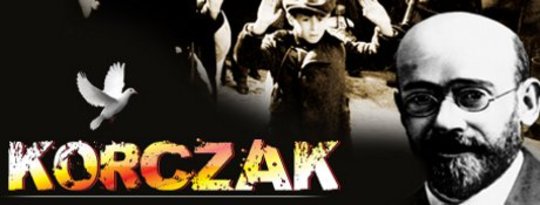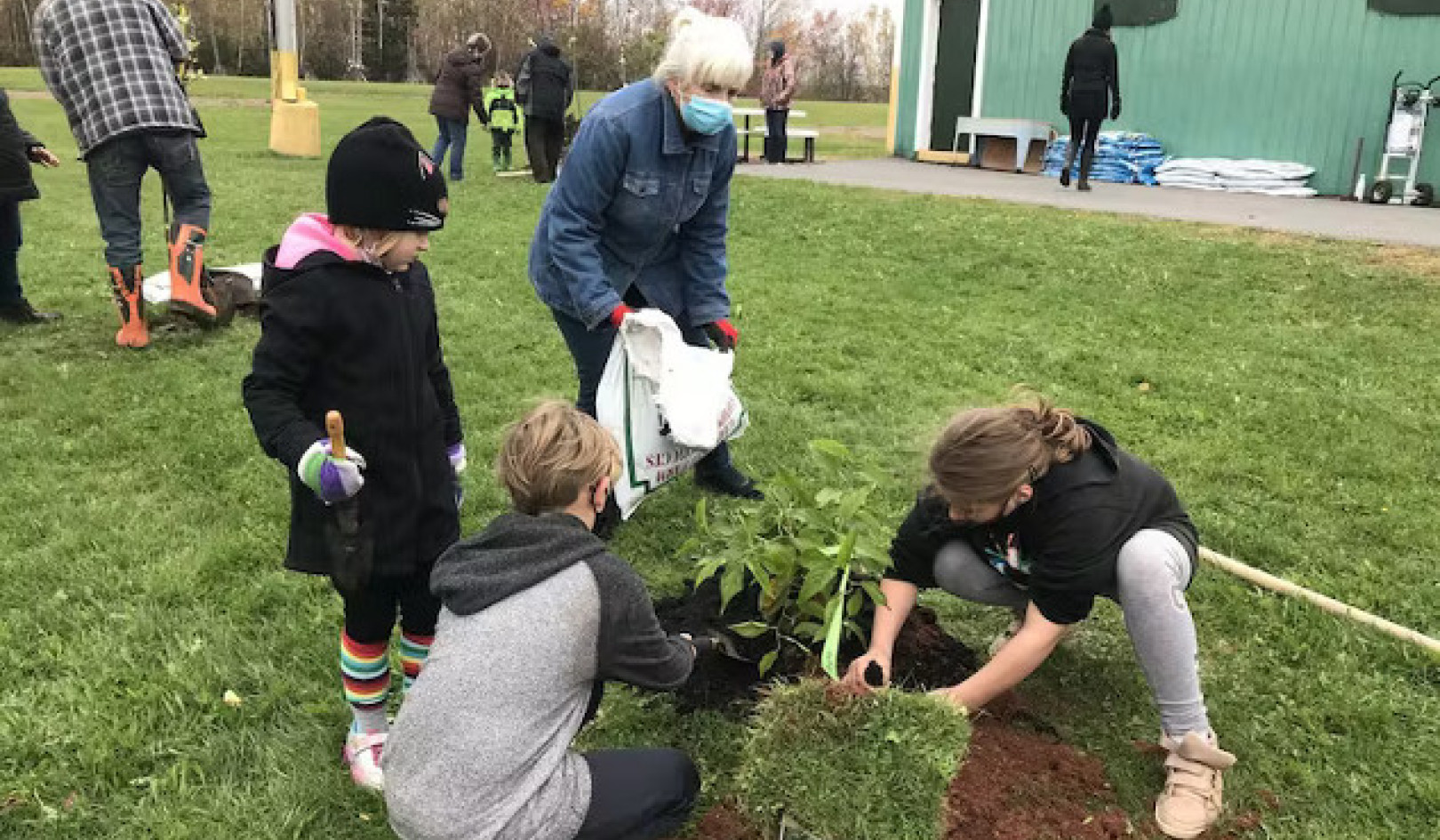
Today is the anniversary of the birth of Janusz Korczak (1878-1942). Korczak was a writer, a medical doctor, a thinker and a radio broadcaster, but he was mainly known as a unique and innovative educator, who founded an orphanage for Jewish children in Warsaw. Today, he is known primarily for his tragic death in the Holocaust, during the deportations from the Warsaw Ghetto on 5 August 1942.
When we commemorate the victims of the Holocaust, we have tendency to focus on their death and devote relatively little attention to their lives before the Holocaust. Who were they? How did they live? What did they dream of? What excited them? The answers to these questions are hard to find in remembrance ceremonies or by naming streets and public institutions for the victims.
Yet the Holocaust was a double genocide. It was a physical annihilation of people's lives and futures. And it was a cultural extermination – of the fabric of life; the ideas, norms and social values; the religious and cultural atmosphere that shaped the victims’ lives. That culture, though torn apart, has the potential to be renewed, as long as we remain interested in and inspired by it.
I do not mean that we ought to relive the past, or imitate a culture that was a product of a different era and place. Rather we should search for and recover intellectual and cultural roots that can enrich our lives. How might we turn the ideas and actions of a person such as Janusz Korczak, who tried to make his stamp on the world, into a living memory?
First, we need to stop focusing narrowly on his death and the years he spent in the Warsaw Ghetto during World War II, and get to know the forty years of his work and writings prior to the Holocaust.
Pedagogy And Politics
“Janusz Korczak” was the pen name of Henrik Goldschmidt, an aspiring Jewish writer and medical student from Warsaw. Some speculate that this name was meant to hide Goldschmidt’s Jewish origin, but in fact his Jewish origin was widely known.
As a young boy, he wished to burn “all the money in the world”, so that he could be free to play with every child, independent of their family’s wealth. His family became poor after his father’s death, when Korczak was 14. While studying medicine, Korczak became a witty social critic. A turning point in his life was his decision to quit medicine and establish an orphanage for Jewish children in Warsaw. This orphanage became a site for radically innovative educational experimentation, dedicated to creating a democratic and just children’s society, or in their words, “a children’s kingdom”.
Europe underwent enormous social and political upheaval during Korczak’s lifetime, which he experienced firsthand. He saw the Russification efforts of the Tsarist Empire in Poland; served as a physician in the Tsarist Army during the Russo-Japanese War (1904-1905) and in World War I (1914-1918), and was drafted for a short time to the Polish Army during the Polish-Soviet War (1919-1921). He witnessed the rebirth of independent Poland and the intensifying antisemitism that accompanied it. He was fully aware of the radical social changes of his era: urbanization, industrialization, commercialization and social agitation. Against this background, he developed the idea that education is different from other professions. Whereas answers to questions like “What is good engineering?” or “What is good medicine?” varied little between periods of peace or war or times of imperialism or national freedom, the answer to the question of “What is good education?” was more complex and controversial, because the ends of education depend absolutely on the image of one's desired society.
None of them knew, or they did not want to know, that children can become moral workers, more diligent and trust-worthy than any other employee. Thousands of methods were invented to waste their time, so they would not sink into idleness and laziness and no one thought to give them productive work. Only manufacturers and circus-owners learned the value of children’s work and exploited it to their advantage in vulgar acts of extortion and robbery. None of them understood or wanted to understand that, just like adults, our children, readily and quickly learn all the things that they really need and are useful to them in practice. Otherwise children need to be artificially forced to study, or to artificially relieve them from studies and come up with artificial ways to make them remember what was taught. Hence grades, rewards and punishments; hence the repetition and exams to cover the year’s material four, six or eight years at a time with a gradual rise in ease and privileges.” (Korczak, “The School of Death;” The School of Life, p. 189, Writings, 8th volume, [Hebrew])
“To repair the world is to repair education,” Korczak wrote, understanding that “progressive education” can be progressive only in relation to particular social goals. His essays were usually published in socialist newspapers (Przegl?du Spo?ecznego, Glos, Spo?ecze?stwo), which were often censored and whose publishers were persecuted by the Tsarist regime. Korczak identified with socialist ideas, but never officially affiliated himself with any political movement or organization. Apparently, he disapproved of the political socialist fixation upon overthrowing the Tsarist regime and its legitimization of violence. He was always concerned with the “day after.” If a revolution succeeded and overthrew the Tsar, how would the people of the old society adapt to living with new ideals? Korczak rose above classical Utopians who only imagined better society, and differed from Karl Marx, who denied his own utopianism. Korczak’s philosophy more closely resembled the ideals of Robert Owen, founder of the cooperative movement, by striving and struggling towards a utopian vision within the boundaries of existing society, thereby, as Martin Buber put it, “fulfilling Utopia.”
Korzcak’s orphanage was run according to a small set of rules that were understandable to children. The children could change most of them through a children’s council. Educators were not allowed to punish children; a children’s court was established to handle the complaints of children or adults. The court had a forgiving nature, and most of the sanctions to which it had recourse were easily bearable. The most severe sanction – expelling a child – was used only once; in most serious cases, a senior member of the orphanage would take personal responsibility for the future behaviour of the accused child, to prevent him from being expelled. Most of the children experienced the court from different points of view: as an accuser, a defendant and a judge. Korczak saw it as practical education for justice.
Unlike a standard grade system, intended to objectively quantify students’ specific skills, a child graduating from the orphanage went through a “referendum”, in which other children predicted the likelihood that he would become a responsible moral person. This evaluation was not alienated and objective but friendly, subjective and performed by equals. One of those children, who I met at the age of 88, told me he received two life goals from it: to become a moral person, and to convince the children who wrote a negative evaluation about him to change their minds.
Education at Korczak’s orphanage was, in fact, education towards a society based on freedom, responsibility and justice. Some of his graduates complained, upon leaving the orphanage, about the cruelty of “real life”. Sometimes he could assist these graduates and sometimes he could not, but this issue never caused any educational compromises.
What can I give you?
Unfortunately I can give you nothing but these few poor words.
I cannot give you God for you must find Him in quiet contemplation, in your own soul.
I cannot give you a Homeland, for you must find it in your own heart.
I cannot give you love of Man, for there is no love without forgiveness, and forgiving is something everyone must learn to do on his own.
I can give you but one thing only – a longing for a better life; a life of truth and justice: Even though it may not exist now, it may come tomorrow.
Perhaps this longing will lead you to God, Homeland and Love.
Farewell. Do not forget.
(Janusz Korczak's farewell speech to each child on leaving the orphanage, quoted in Michael Shire, The Jewish Prophet, p.114)
Systematization Without A System
Korczak was an important contributor to progressive education. Some aspects of the child-centred approach he helped pioneer are still considered innovative today (due to the conservative nature of education in general).
I have read many interesting books. Now I am reading interesting children. Do not say “I know.” I have read the same child once, twice, three times, ten times, and after all that I do not know much. For the child is an entire world, which has existed for a long time and will exist forever. (Korczak, “Rules for Education,” The Religion of the Child, p. 305 [Hebrew])
Korczak wrote a lot and specifically documented educational experiences. At the orphanage, he closely monitored and recorded the children's physical and mental development, influenced by the scientific approach of his medical studies. Educational documentation, according to Korczak, differs from standard scientific documentation, in ways that reveal the unusual principles underpinning his pedagogical approach.
Korczak understood that people are vastly different from one another, and believed it was futile to search for a pedagogical “recipe” which would succeed equally for all human beings. He frequently criticized the oppressive and boring methods of conservative education. Instead of attempting to formulate a scientific general theory of educational, Korczak saw every child as a separate human being, each worthy of being understood as an individual. That is to say, his pedantic documentation and analyses of the progress of a specific person (“person” and “child” are synonyms in Korczak’s philosophy) did not aim to reach any objective general meaning, because people are not objects. Rather, it can be characterized as "systematization without a system”, aiming to reach conclusions about the development and education of that specific person over time.
Eschewing pretension to the objectivity of a scientific researcher, Korzcak’s educator is deeply active in his students’ lives and should therefore document not only them, but himself as well. Korczak mocked educators who scold their students for failing because they are not diligent, comparing them to a doctor who scolds his patient for remaining sick despite being given the most professional treatment. Indeed, Korzcak concluded that the most important factor in improving education is the educator’s ability to develop over time. Every educator must find or invent his own methods, improve them with experience and, no less important, by analysing the documentation of that experience. Many educators suffer from forced routines imposed on them by the structure of modern educational systems. One well-known outcome of this routine is worn out educators. One of the biggest advantages to Korczak’s approach is that it offers a way to translate accumulated experience into what we would now term “ongoing meaningful experience”.
Imagine a teacher who in the course of a regular school day teaches over 100 students in different classes, in the process encountering students with various learning difficulties, several problematic social situations during class and break, as well as improvements in certain students’ behaviour and performance. Typically, the educator is under pressure to meet standards set by the education system relating to the rate of progress through the material and preparations for standardised tests, while meeting bureaucratic demands to document attendance and test grades. Usually, at the end of such a day, the teacher’s only aspiration is to return home as soon as possible to mentally detach herself as much as possible from its events. The day’s experience does not sharpen into any meaning, but accumulates into a cloud of routine that leads eventually to burnout and a reduced awareness by the teacher of her surroundings. If she could, as Korczak demands be done systematically, choose a few of the many different events in a school day to reflect upon in depth, the educator could form something with cumulative meaning. Her achievements and failures, events and experiences would become material for a constantly developing analysis and a basis for decision-making about specific or systematic changes, improving the quality of the education itself as well as the educator’s sense of purpose. Of course, this is not easy to achieve.
To succeed with this method, an educator needs more than self-discipline and sufficient time to document and analyse. She has to abandon the search for a "winning recipe," and reject the possibility that she "knows enough already," and replace this thinking with more modest certainties. She must cultivate an awareness of her weaknesses and failures, while trying the overcome them creatively. She must develop an ability to learn from the time she spends with students and from the feedback she receives from fellow educators. These new experiments should also be documented and analysed. The combination of achievements and failures would then form a foundation for ever-growing educational ability.
About The Author
Erez Raviv is an educator at the Ghetto Fighter's House Museum and the Center for Education in the Spirit of Janusz Korczak – Ha'meorer.
This article discusses a fraction of Janusz Korczak’s pedagogical thought, which comprises an extensive ongoing dialogue between theory and practice. Those who explore his writing further will find in it a profound love for mankind and a harsh self-criticism that is easy to identify with and a wonderful source of inspiration to better our lives.
A large portion of Korczak's hand-written work is found in the Israeli archive of the Ghetto Fighters' House Museum at Kibbutz Lohamei Ha'getaot. The Kibbutz founders, who included a number of the leaders of the Warsaw Ghetto Uprising, knew Korczak personally. He was one of the intellectuals who agreed to lecture to Jewish youth in covert Zionist-Socialist youth movement seminars in occupied Warsaw (1940). The Ghetto Fighters’ House Museum includes the Yad Layeled Museum (Children's Memorial), which displays a permanent exhibition dedicated to the life of Henrik Goldschmidt, a.k.a, Janusz Korczak.
Article Source: New Left Project
























